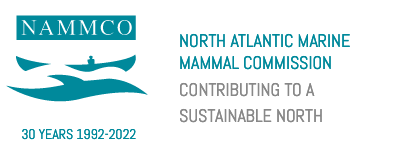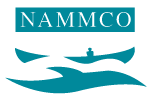Blog: Can the harvest of marine mammals be part of a sustainable food system? Learning from role play
In addition to working as Lead Facilitator for Homeward Bound (see previous posts here, here and here), I also had the opportunity to design and deliver a session on the interaction between science, ethics and politics in environmental governance.
I had three key aims for this session:
1. Highlight that there are different ways to think about and approach environmental values/ethics. That is, make clear that even though we may all want to protect the environment/create a sustainable future, this will mean very different things to different people depending on things such as how they understand and approach human/nature relations and on what basis they assign value to the natural world.
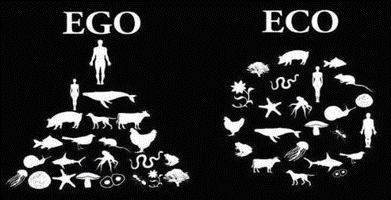

2. Indicate how this complexity of environmental values plays out in practice in real-world cases of environmental conservation. Here it was also particularly important to show how there is often a need to navigate diverse perspectives and positions (and in some cases make compromises) to achieve positive change.
3. Provide an insight into the complexities we deal with in NAMMCO as a body providing environmental management advice at an international level, and encourage participants to reflect on (and potentially reconsider) whether they think the harvest of marine mammals can be part of a sustainable food system.
To address the first aim we did an exercise I called Ethical Squares. This was designed to help the participants think about their environmental values, see the differences that existed within the group, and start to explore the alternative approaches to reasoning about environmental ethics.
In the exercise, I asked a series of questions with multiple choice answers. Participants were asked to move to one of the four corners of the room depending on their answer to each question. Once positioned, I then asked each group to justify why they had chosen their particular corner/answer and encouraged people to move positions if they found the arguments convincing. The questions used in this exercise were:
- The main reason I want to protect the environment is because…
- It is useful/necessary
- All living things have a right to exist
- It is sacred/fills me with wonder and awe
- I am inseparable from it
- Which do you see as having more value:
- Phytoplankton
- Krill
- Fish
- Whales
- For you, which of these is most acceptable to kill for food?
- Duck
- Pig
- Octopus
- Seal
Through the Ethical Squares exercise I wanted to introduce key debates and lines of division in environmental ethics and establish that there are different ways to think about what is considered right/wrong in how we relate to our biological community. It was also important to show that such differences existed even within a group like ours for which there was a high level of agreement on the importance of caring for the ecological systems of our planet. Certainly, the discussions and debates we started to have through the exercise could have continued for several hours, but we needed to move on…
To address the second aim, we had three short Case Study Vignettes. These were designed to highlight some of the complexities and compromises required when doing environmental conservation in practice. I began by talking about my previous work with the use of genetically modified organisms in agriculture. HB faculty member and co-founder Dr. Justine Shaw then presented on tourism in Antarctica (very relevant given our voyage!). Finally, we were lucky enough to have Dr Colleen Begg (HB3 alumnae) present her work on the conservation of large carnivores in Africa via a pre-recorded video. Having established through these vignettes that there can be competing views and interests about what conservation or ethical management looks like, we had a good foundation to give the participants an insight into the work we do at NAMMCO.
To meet the third objective for the session, the NAMMCO Secretariat had collaboratively worked to develop a role play exercise. This was designed to give participants an interactive experience of how science, ethics and politics come together in international deliberations and decision-making on environmental policy. It was also to have them think about the demands that the diverse positions that exist in such arenas place on our leadership skills.

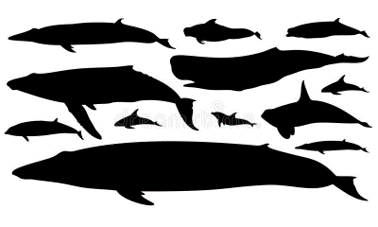
The scene for the role play was a meeting of the ‘Global Sustainability Council’ (a hypothetical body charged by the UN to decide overarching directions for good environmental policy, with a specific focus this year on food). The question to be addressed at the meeting was: Can the harvest of marine mammals be part of a sustainable food system? Why/why not? Under what conditions?
After the scene was set, the participants were randomly divided into different actor groups that they would represent at the meeting. We had 9 actor groups in total. Three groups would represent the position that marine mammals could be sustainably harvested (i.e. the Union of Commercial Hunters, the Association for Communal Hunting, and the Indigenous Communities Coalition). Three groups would argue against this position (i.e. the Federation for Animal Rights, the Alliance Against the Hunting of Marine Mammals and the Society for Environmental Preservation). While the last three groups had a more ambiguous position that could go either way depending on the conditions (i.e. the Alliance Supporting Sustainable Use, the Environmental Conservation Collective, the Advisory Group of Scientific Experts). In addition to these actor groups, we assigned three people the position of Councillors to take a decision at the end of the meeting. We also assigned some individuals the role of Story Harvesters. Rather than actively participating in the debate, the Story Harvesters were asked to watch the process through particular lens and report what they observed back to the group at the end. The themes or lens for our story harvesters were: leadership, power, inclusion and emotion.
Each actor group was given a summary factsheet with information about the history and current context of marine mammal harvesting (including abundance estimates, catch quotes and trends for the different NAMMCO target species), as well as a sheet with more information about the particularities of their group’s position. This included things that were important to them, their beliefs/opinions on certain matters and how they might conduct themselves during the debate. All the groups were given time to discuss their group’s position and prepare a one-minute opening statement while the role play itself took place the following day.
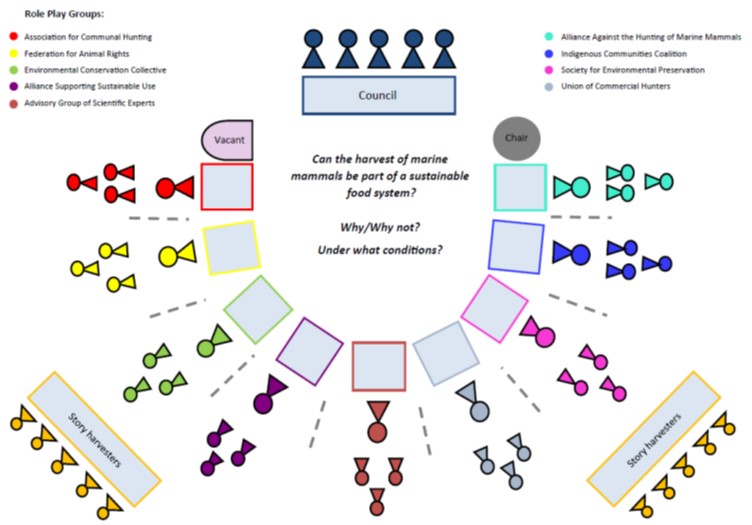
We wanted to conduct the role play in a way that reflected (at least to some extent) a real international negotiation. This was made difficult by some rough seas on the day and the fact that all the chairs were attached to the floor! However, we did create a set up in which one representative from each group sat behind a sign showing the group’s name in the front row, while the rest of the delegation (actor group) sat behind them. In our role play, anyone from the group could request the floor, however the delegations were of varying sizes to help capture different distributions of power and give participants an experience of how both large and small groups face challenges. After the round of opening statements, participants could raise their flag to request the floor, while I served in the role as Chair and directed the flow of discussion. The group certainly needed little prompting to engage and it was often the case that almost all the groups had raised flags wanting to contribute to the conversation. Although the Animal Rights Group were ejected from the room for disruptive behaviour, they continued to campaign outside as a way to have their voices heard.
The role play itself ran for an hour, after which we broke for coffee while the Councillors and Story Harvesters prepared their closing statements.
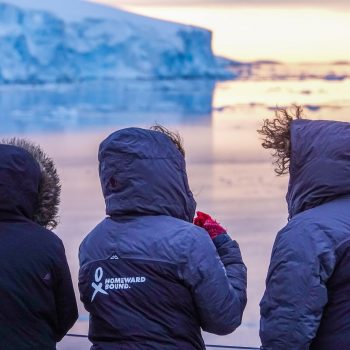
Photo credit: Emma Kennedy
The decision taken by the Councillors was particularly interesting for us at NAMMCO. We were very curious to see how this group of women leaders from around the world would react to the question of whether the harvest of marine mammals could contribute to sustainable food systems after hearing a range of different stakeholder positions.
The decision statement delivered by the Councillors noted that there was almost complete consensus on questions regarding food sovereignty and the rights of people to hunt when it is a necessity to maintain livelihoods in local communities. Therefore, indigenous and communal hunts were supported. However, the Council felt that on questions of food security and how we feed the world, it would be important to have more information about the potential impacts of scaling up commercial hunts, as well as the potential risks to human health (e.g. from the concentration of pollutants in top level predators). They also noted that it was important to address disagreements regarding definitions of sustainability and consider the extent to which there was a consensus regarding the available science. For this, they requested additional work be done, that the stakeholders find ways to collaborate, and the group reconvene in 1 year to examine the information gathered and progress made. The Council also emphasised the importance of having sufficient regulatory and monitoring frameworks.
On this last point, it became very clear to me through the exercise that NAMMCO would benefit from more international visibility. Before the role play, the participants were not aware of NAMMCO’s existence and the fact that whaling and sealing is currently so well regulated and monitored in the North Atlantic. Certainly if opinions are to shift on the potential to have a sustainable harvest of cetaceans and pinnipeds, then it is crucial the people are made aware of the work that NAMMCO does to ensure that hunting is sustainable and responsible. It is also key that they know how our management advice combines the best available scientific and user knowledge. NAMMCO as a regional management body is unique internationally and if conversations about whaling and sealing are to change in ways that are appropriate for the conditions of our current age, then the work and experience of NAMMCO over the last 25 years needs to be more visible.
After the role play, it was obvious that the participants both had fun with the exercise and gained some experience of the challenges and opportunities for working on environmental conservation across multiple stakeholder groups. They also all had an opportunity to think deeply and carefully about their position regarding whaling and sealing, and to build sensitivity towards the existence of divergent interests, actors and views on the topic. The exercise was indeed a powerful way to not only introduce people to the topic and the different positions involved, but to also encourage them to reflect more deeply on their own assumptions and beliefs regarding the topic and open up the potential for perspectives to shift.
For example, one of the participants told me that she was initially shocked when as a vegan she was put into the group of commercial hunters, but then how grateful she was for the opportunity to consider the issue from a completely different perspective because it had allowed her to actually come to a place of understanding and respecting this position that was at the outset so very different from her own.
Several of the participants also asked me if the materials used in setting up the exercise would be made available for them to run the role play in their own home contexts. We hope to deliver that in the future since it would be fantastic to see the exercise conducted with other audiences. Watch this space!
